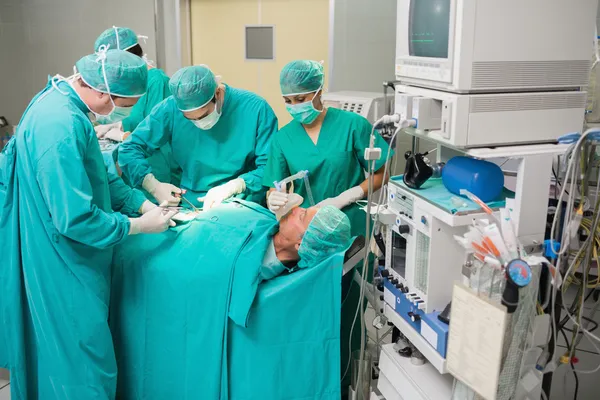By George Jacob
Kochi, July 5, 2023: On June 26, seven students of Thiruvananthapuram Government Medical College Hospital in Kerala submitted a letter to the principal seeking permission to wear the hijab inside the operating theater. They contended that their religious belief does not permit them to bare their heads.
This stirred the hornets’ nest among the medical community in the state. There was widespread objection to the students’ demand. The surgical community’s objection was based on the dictum that sterility which is sacrosanct inside operating theatres cannot be superseded by religious beliefs.
The first thing surgeons do to maintain sterility before they operate is to don preferably sterile cap and mask. This is then followed by meticulously washing their hands with disinfectant solution for a prescribed time – a ritual by itself.
Hands are scrubbed with the disinfectant from elbows to fingers in to and fro manner. The lather of the disinfectant is then washed off under running tap water which flows from the fingers towards the elbows. In earlier days, the ritual of hand washing used to be more stringent.
Surgery professors insisted their unit members scrub their hands with soap using brushes with hard bristles. This practice was given up as the hard bristles abraded the skin, and was also thought to dislodge germs from the depths of finger nails superficially to the surface of hands. Hand washing has since been more kind to surgeons’ hands by just washing with disinfectant solution under running tap water.
After the hand washing ritual, the hands are gloved with sterile gloves. Surgeons would then don the surgical scrubs, which cover them completely and snugly. These scrubs are long, but stop short of making contact with the floor.
The surgeon is now ‘sterile’ to operate the patient.
With the cap already in place to cover the head, and scrubs covering them entirely the students’ demand to cover their heads and skin further is rather redundant. Surgeons are discouraged from using lose scrubs that make contact with gadgets and other personnel inside the operating room before they approach the patient on the operating table. If this is to be observed, lose clothing like hijab and burqua cannot be allowed inside the operating theater.
This is not to say that Islamic religious practices alone cannot be allowed inside the operating theatres. Ideally, surgeons should keep away from using ornaments on their hands, including wedding rings as they can harbor dangerous bacteria, which could remain within the ornaments despite religious washing of hands. The same holds true for sacred threads tied around wrists.
Surgeons would do well if they do not sport sandal wood paste, tilaks or bindis on their foreheads. The sandalwood paste that dries with time and the powder of the tilak can drop into the operating field, causing infection.
Down the years surgeons have been waging relentless and ongoing war against infection. Their craft is innately fraught with risk of infection as they enter infected body cavities and infected organ systems viz; the gastrointestinal, and genitourinary. Infection is common following Operating on victims of trauma, despite meticulous and extra care surgeons take while operating on them. To address the inherent risk of infection, surgeons try to limit infection by adhering to principles of antisepsis before, during and after surgical procedures.
Among various surgical specialists, those who take principles of antisepsis to the hyperbole are orthopedic surgeons. They take to offending germs as bull to the red flag! One cannot blame them. Infection of the bone is extremely difficult to treat.
This being the case, there is absolutely no place for demonstrative religiosity inside the operating theater, which is no place to hang religiosity on the sleeves.
Surgeons will do well by leaving their faith, religious rituals and beliefs inside their hearts, which will go a long way to render them better human beings involved in the sacred profession of treating people by operating them.
(Doctor George Jacob is a Consultant Surgical Gastroenterologist at Lakeshore hospital, Kochi, Kerala.)


Excellent description